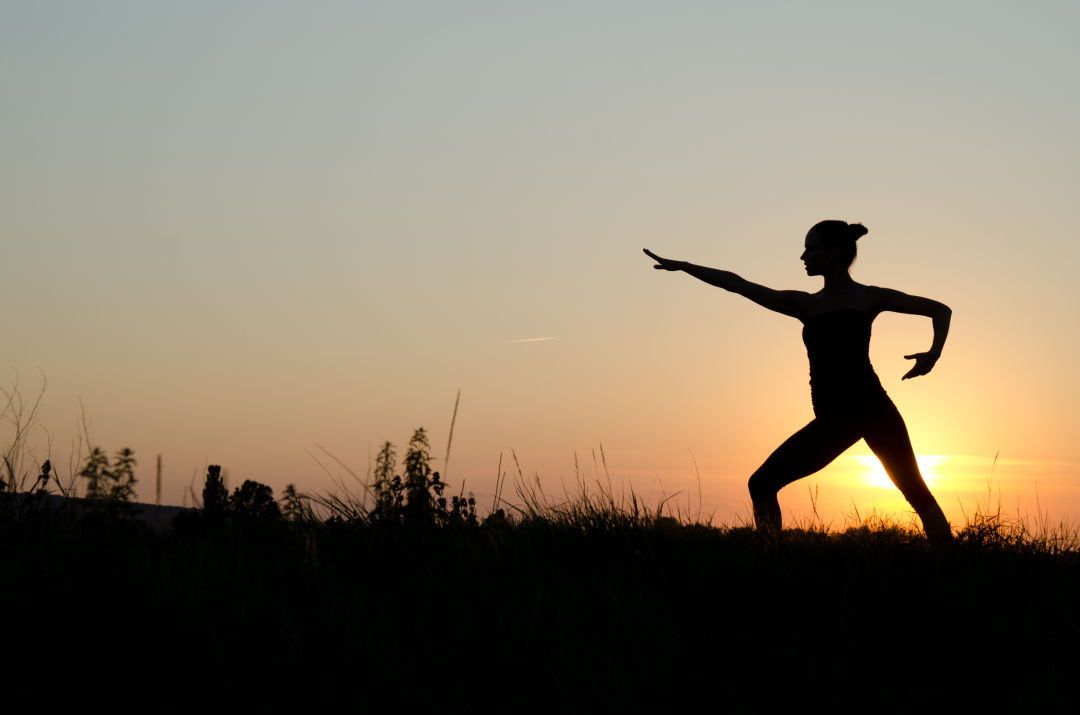Tai Chi Can Help Prevent Falls and Improve Your Mental Health

Image: Markgraf/Shutterstock
Moving meditation—that's how Dr. Aihan Khun describes the ancient Chinese practice of Tai Chi.
Kuhn owns Sarasota's Tai Chi and Qi Gong Healing Institute and says she has seen vast improvements in senior students who practice the discipline's slow, circular movements. Tai Chi has become increasingly popular in the United States, especially in assisted living facilities and senior centers, because of its combination of physical and mental exercise, and its proven results. Kuhn calls the program a fitness of the mind and body that incorporates internal work—a kind of exercise that the western world typically shies away from.
"American culture is not focused on internal work because the visuals and results of the external work are more appealing," says Kuhn. "Westerners do well with linear, straight motions, so the circular motion of Tai Chi, which incorporates the entire body, can be challenging."
According to the Journal of the American Geriatrics Society, seniors who practice Tai Chi for one year reduce their risk of falling by 43 percent. The study found that Tai Chi improved people's balance and agility and reduced symptoms of arthritis, since the motions can relieve joint pain. The Mayo Clinic, meanwhile, has found that the practice improves immune function, flexibility and strength.
It's the mental benefits, however, that most impress Kuhn. Tai Chi has been shown to significantly lower blood pressure and heart rate, reducing symptoms of anxiety, stress and depression. Who doesn't want that these days?
Practicing just 20 minutes for a few days a week can slow down the mind.
"We are distracted by so many things in our modern world. Not many of us can focus," says Kuhn. "With Tai Chi, and the more beginner practice of Qi Gong, we are raising awareness, using both parts of the brain, to live in the present moment."
Qi, the Chinese term for energy, is established during Tai Chi practice. According to the philosophy, the body contains several blockages that keep qi from flowing steadily. By incorporating the breath and motion of Tai Chi, you are working to clear those blockages. Kuhn says this can result in several positive things—from healing anxiety to improve metabolism and organ function. She says it also helps people maintain a healthy weight and can offer pain relief for those undergoing cancer treatments.
The social benefits of practicing in a large group (like you see in the park or at the beach) can also be healing.
"When you practice together, you feel the group energy, the teamwork, and it feels really good," says Kuhn. She and her students will give a demonstration of the practice at the grand opening of The Bay park in October.
People of all ages can implement Tai Chi into their routine to stay fit, unwind and unplug. While seniors benefit the most physically (Kuhn herself recovered from hip replacement surgery in part through Tai Chi), younger generations can use it to unplug from technology. If you find yourself glued to your phone (I'm guilty), unable to avoid the notifications or scrolling obsession, your brain will thank you for this meditative brain massage.
Kuhn hosts classes on Tuesdays and Thursdays at Shapes Fitness for Women on Fruitville Road. And the Area Agency on Aging—a nonprofit that helps seniors in Southwest Florida—hosts eight-week workshops at which you can learn the basics and even become a volunteer teacher. The organization will provide training and a certificate of completion.
To achieve master status, you can become a teacher through Kuhn's training program.
"The most profound benefit of this gentle practice is balance," says Kuhn. "Your balance gets better in every aspect of life."
Tai Chi and Qi Gong Healing Institute hosts classes weekly at Shapes Fitness for Women, 5451 Fruitville Road, Sarasota. Classes will continue through July and then return in October. For more information, click here or call (508) 380-0449.
For information on the Area Agency of Aging, click here or call (727) 570-9696.



